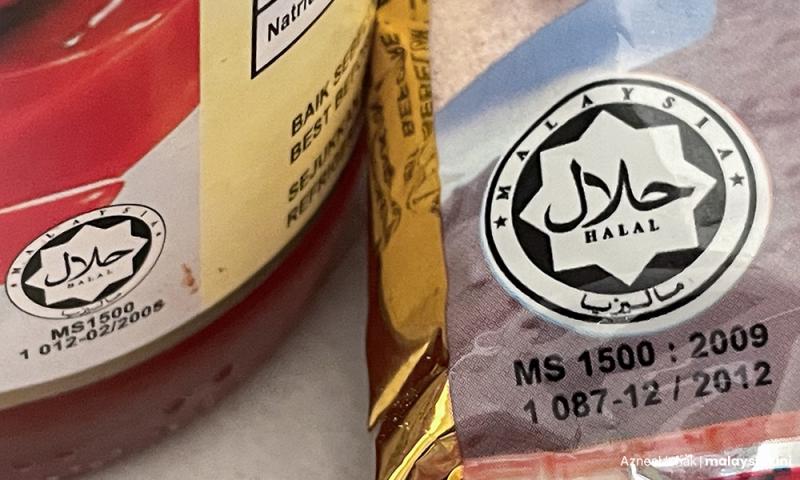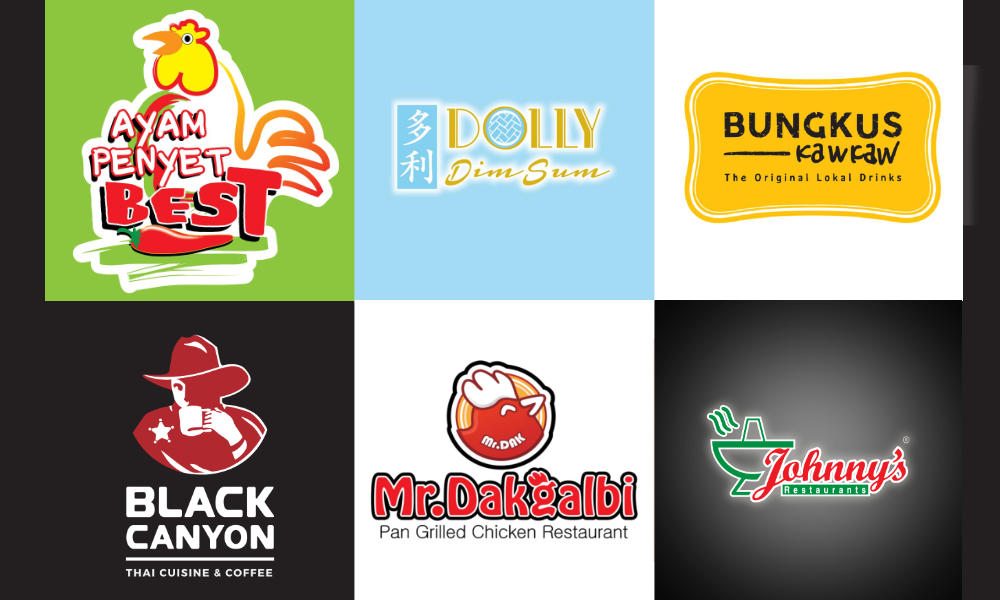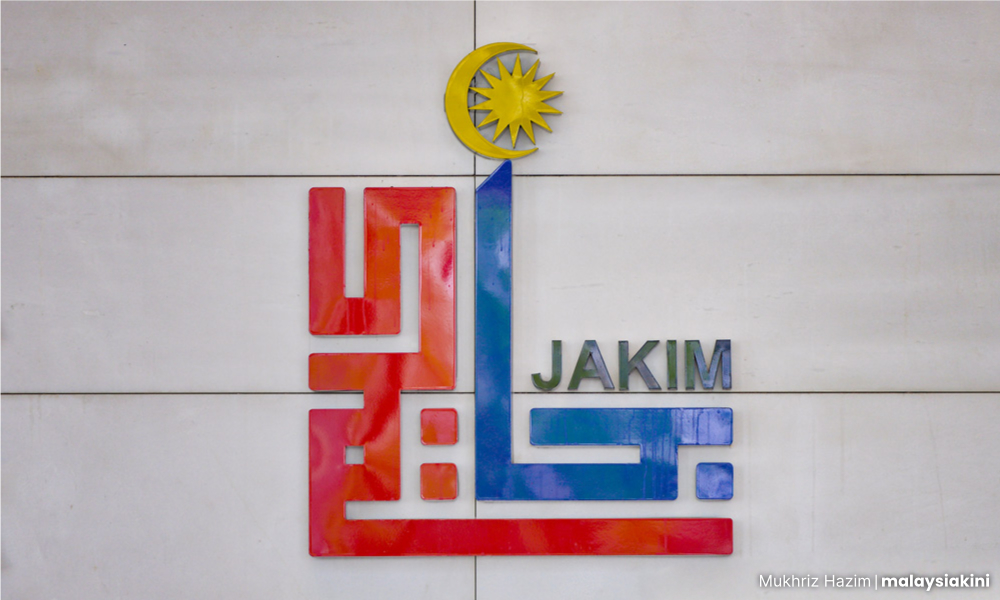
Andrew Sia
Published: Sep 11, 2024 1:11 PM
COMMENT | Imagine that chocolate is forbidden to a religious group. But others still want to do business with them.
So they sell cakes without chocolate to followers of that religion. Outside the shop, they put signs announcing “No chocolate served”.
All is going well. But then some religious leaders say, “That’s not good enough. You must have a Clean Food Certificate from us.”
Others ask, “Why? Your people are happy to come to our shop as long as we are chocolate-free.”
But the leaders say, “Well, we are not sure if the judgment of our own followers is really reliable. Only we should decide what is acceptable.”
This analogy sums up the recent controversy over a proposal to make it compulsory for “Muslim-friendly” food outlets to get halal certificates.
“No pork served” may not be good enough, says the Islamic Development Department (Jakim).
They had earlier announced that six popular food and beverage outlets regularly patronised by Muslims lack halal status.
Why were these outlets highlighted? Was it because they were owned by non-Muslims?
Then the Umno ulama council said that Jakim’s compulsory halal certification is “unsuitable” for restaurants owned by Muslims.
The reasoning given by the council’s deputy chairperson, Mohd Khairuddin Aman Razali, was that Muslims are already bound by the principles of halal, haram, cleanliness, and purity.
Published: Sep 11, 2024 1:11 PM
COMMENT | Imagine that chocolate is forbidden to a religious group. But others still want to do business with them.
So they sell cakes without chocolate to followers of that religion. Outside the shop, they put signs announcing “No chocolate served”.
All is going well. But then some religious leaders say, “That’s not good enough. You must have a Clean Food Certificate from us.”
Others ask, “Why? Your people are happy to come to our shop as long as we are chocolate-free.”
But the leaders say, “Well, we are not sure if the judgment of our own followers is really reliable. Only we should decide what is acceptable.”
This analogy sums up the recent controversy over a proposal to make it compulsory for “Muslim-friendly” food outlets to get halal certificates.
“No pork served” may not be good enough, says the Islamic Development Department (Jakim).
They had earlier announced that six popular food and beverage outlets regularly patronised by Muslims lack halal status.
Why were these outlets highlighted? Was it because they were owned by non-Muslims?
Then the Umno ulama council said that Jakim’s compulsory halal certification is “unsuitable” for restaurants owned by Muslims.
The reasoning given by the council’s deputy chairperson, Mohd Khairuddin Aman Razali, was that Muslims are already bound by the principles of halal, haram, cleanliness, and purity.

Food and beverage brands found not to be halal-certified
However, he said non-Muslim businesses must be certified to “prevent Muslims from accidentally buying food that contains non-halal ingredients”.
I don’t understand. If a Chinese businessperson makes much money from Malay customers, why would he sabotage himself by adding in haram stuff? Everyone has phones that can take videos of the slightest mistake. Why take that risk?
And why the discrimination? Does Khairuddin assume that all Muslims will always strictly follow all religious rules? What about corruption? What about lying and cheating?
What about the open flouting of the ruling that smoking is haram? Isn’t that far more harmful to believers’ health?
Deeper meaning of clean food
I hate to break it to Khairuddin but some Muslim restaurants fall below the standard of “cleanliness” he assumes for all his co-religionists.
For example, a dirty mamak restaurant in Malacca was ordered to close for two weeks in February after a surprise inspection. Not by the religious department but by the state Health Department.
This case only came to light because a video of a restaurant worker urinating in a drain went viral (the place had no functioning toilet!)
Did it have halal certification? If there was no viral video, would action have been taken?
However, he said non-Muslim businesses must be certified to “prevent Muslims from accidentally buying food that contains non-halal ingredients”.
I don’t understand. If a Chinese businessperson makes much money from Malay customers, why would he sabotage himself by adding in haram stuff? Everyone has phones that can take videos of the slightest mistake. Why take that risk?
And why the discrimination? Does Khairuddin assume that all Muslims will always strictly follow all religious rules? What about corruption? What about lying and cheating?
What about the open flouting of the ruling that smoking is haram? Isn’t that far more harmful to believers’ health?
Deeper meaning of clean food
I hate to break it to Khairuddin but some Muslim restaurants fall below the standard of “cleanliness” he assumes for all his co-religionists.
For example, a dirty mamak restaurant in Malacca was ordered to close for two weeks in February after a surprise inspection. Not by the religious department but by the state Health Department.
This case only came to light because a video of a restaurant worker urinating in a drain went viral (the place had no functioning toilet!)
Did it have halal certification? If there was no viral video, would action have been taken?

Umno ulama council deputy chairperson Mohd Khairuddin Aman Razali
Former Umno law minister Zaid Ibrahim pointed out, “Even food served by Muslim operators can be unhygienic… What about school cafeterias dishing out rotten fish?”
“That’s not halal. But of course, Umno says certification is not necessary when the operators are Muslims,” said Zaid.
I am very particular about my tea and sadly, there are some eateries, even halal ones, that sell cheap tea made with hazardous colouring.
Another common problem is that restaurants, both halal and non-halal ones, sell chicken contaminated with antibiotic and hormone residues. It’s not their fault, it’s just how local poultry is raised in factory farms.
The cleanest food is probably sold in vegan organic cafes where the vegetables are not polluted with pesticides while no animals are slaughtered to feed us. Even milk and eggs are not served in vegan eateries.
Yet, according to the proposed Jakim rules, even these vegan cafes must apply for halal status. Unless, according to Umno leader Khairuddin, they are owned by Muslims.
Does sensitivity work one way?
DAP MP Teresa Kok responded to Jakim’s proposal factually – that compulsory halal certification for “pork-free” outlets will increase the burden on businesses (including thousands of Malay-owned ones) in our tough economic times.
Instead of having a respectful discussion, Kok was attacked by politicians from Bersatu and Umno for touching “sensitive” 3R issues. No, not “Recipes, Restaurants and Refreshments” but the other one involving race and religion.
Former Umno law minister Zaid Ibrahim pointed out, “Even food served by Muslim operators can be unhygienic… What about school cafeterias dishing out rotten fish?”
“That’s not halal. But of course, Umno says certification is not necessary when the operators are Muslims,” said Zaid.
I am very particular about my tea and sadly, there are some eateries, even halal ones, that sell cheap tea made with hazardous colouring.
Another common problem is that restaurants, both halal and non-halal ones, sell chicken contaminated with antibiotic and hormone residues. It’s not their fault, it’s just how local poultry is raised in factory farms.
The cleanest food is probably sold in vegan organic cafes where the vegetables are not polluted with pesticides while no animals are slaughtered to feed us. Even milk and eggs are not served in vegan eateries.
Yet, according to the proposed Jakim rules, even these vegan cafes must apply for halal status. Unless, according to Umno leader Khairuddin, they are owned by Muslims.
Does sensitivity work one way?
DAP MP Teresa Kok responded to Jakim’s proposal factually – that compulsory halal certification for “pork-free” outlets will increase the burden on businesses (including thousands of Malay-owned ones) in our tough economic times.
Instead of having a respectful discussion, Kok was attacked by politicians from Bersatu and Umno for touching “sensitive” 3R issues. No, not “Recipes, Restaurants and Refreshments” but the other one involving race and religion.

Seputeh MP Teresa Kok
This included an intimidating, finger-wagging TikTok video from Umno Youth chief Dr Muhamad Akmal Saleh.
He could not resist adding an insult: "I also ask the government to prepare a non-halal logo to stick to the forehead of this old lady.”
Does “sensitivity” only go one way in this country? Pusat Komas noted that while Kok’s views were reasoned and respectful, Akmal was “inflammatory” and hostile.
The rights group asked why a police probe was launched against Kok for raising “sensitive” issues while Akmal got away scot-free.
Costly and complex halal applications?
None other than Prime Minister Anwar Ibrahim’s own political secretary Azman Abidin agrees with Kok that getting halal status is “expensive and there are stringent requirements”.
As a former restaurant operator he should know.
“This is why many restaurant operators and companies, including those owned by Malays, are not interested in getting the certificate,” he told Malaysiakini.
He added that 90 percent of Malay restaurants in Malaysia don’t have halal certification.
Now, will the politicians who have attacked Kok also go after Azman for saying basically the same “sensitive” things?
Former Umno politician Khairy Jamaluddin said on his Keluar Sekejap podcast recently that while the official Jakim fees for halal certification are not so high, there are “consultants” or “middlepersons” charging much, much more to “facilitate” the process. Does that suggest something untoward?
This included an intimidating, finger-wagging TikTok video from Umno Youth chief Dr Muhamad Akmal Saleh.
He could not resist adding an insult: "I also ask the government to prepare a non-halal logo to stick to the forehead of this old lady.”
Does “sensitivity” only go one way in this country? Pusat Komas noted that while Kok’s views were reasoned and respectful, Akmal was “inflammatory” and hostile.
The rights group asked why a police probe was launched against Kok for raising “sensitive” issues while Akmal got away scot-free.
Costly and complex halal applications?
None other than Prime Minister Anwar Ibrahim’s own political secretary Azman Abidin agrees with Kok that getting halal status is “expensive and there are stringent requirements”.
As a former restaurant operator he should know.
“This is why many restaurant operators and companies, including those owned by Malays, are not interested in getting the certificate,” he told Malaysiakini.
He added that 90 percent of Malay restaurants in Malaysia don’t have halal certification.
Now, will the politicians who have attacked Kok also go after Azman for saying basically the same “sensitive” things?
Former Umno politician Khairy Jamaluddin said on his Keluar Sekejap podcast recently that while the official Jakim fees for halal certification are not so high, there are “consultants” or “middlepersons” charging much, much more to “facilitate” the process. Does that suggest something untoward?

It is disappointing that Anwar went after Kok for publicly responding to Jakim’s equally public proposal. The prime minister chided her for not going through “the proper channels”.
But seriously, if he wants ALL prickly issues to be discussed via such official methods, did he forget to tell Jakim about this guideline?
Sadly, there may also be a perception that the “proper channels” mean a labyrinth of endless meetings, delays and paper shuffling where ideas eventually die a silent death in a bureaucratic sinkhole.
We must find ways to discuss our differences in a constructive and civilised way. For example, Klang MP V Ganabatirau has suggested incentives for voluntary halal certification or a tiered system (between say, small stalls and large hotels).
Maybe we also need a cabinet-level “Sensitive Issues Squad” that can quickly react like firefighters to douse the flames before they spread.
Sadly, Malaysia seems to be a tinderbox where even small issues are easily set ablaze. We can’t go on like this, turning every tiny “chocolate” chip into fireworks.
Finger-wagging doesn’t help. Cool heads and kind hearts will be better.
ANDREW SIA is a veteran journalist who likes teh tarik khau kurang manis. You are welcome to give him ideas to brew at tehtarik@gmail.com

No comments:
Post a Comment